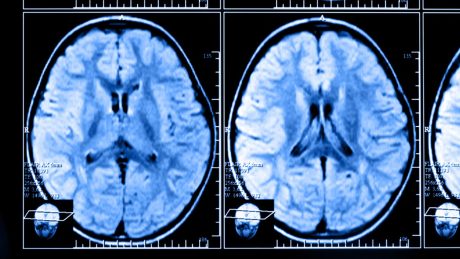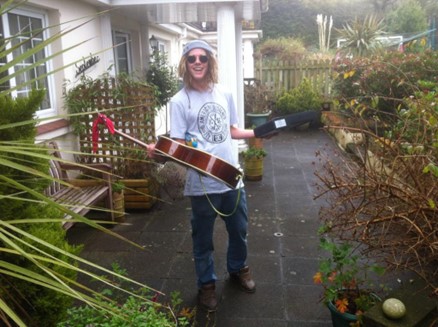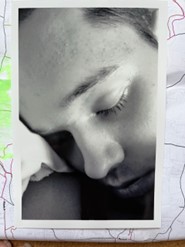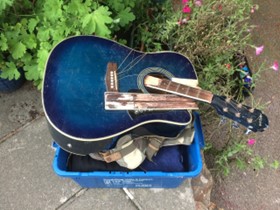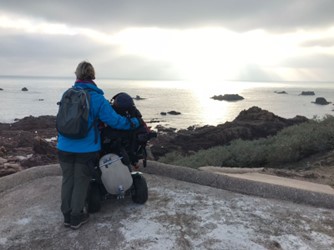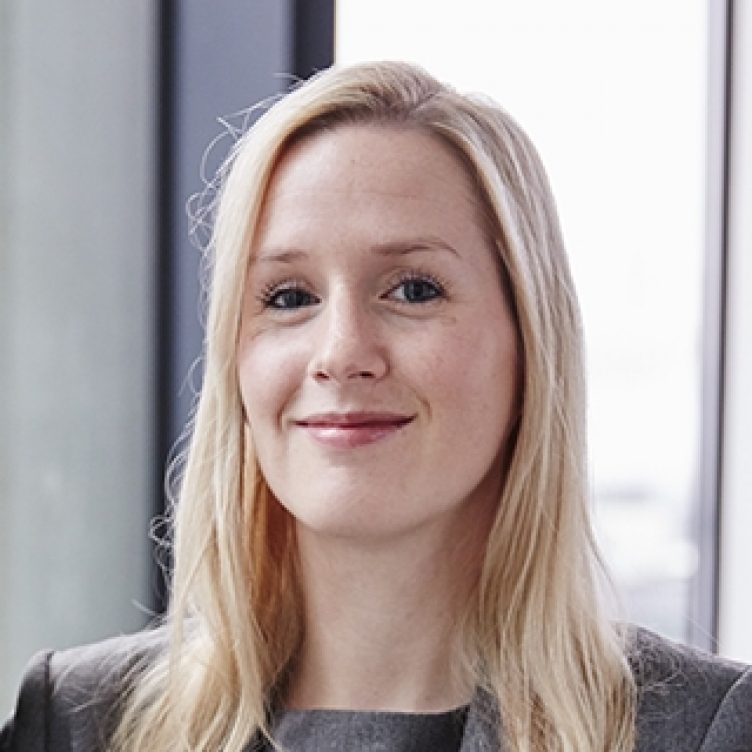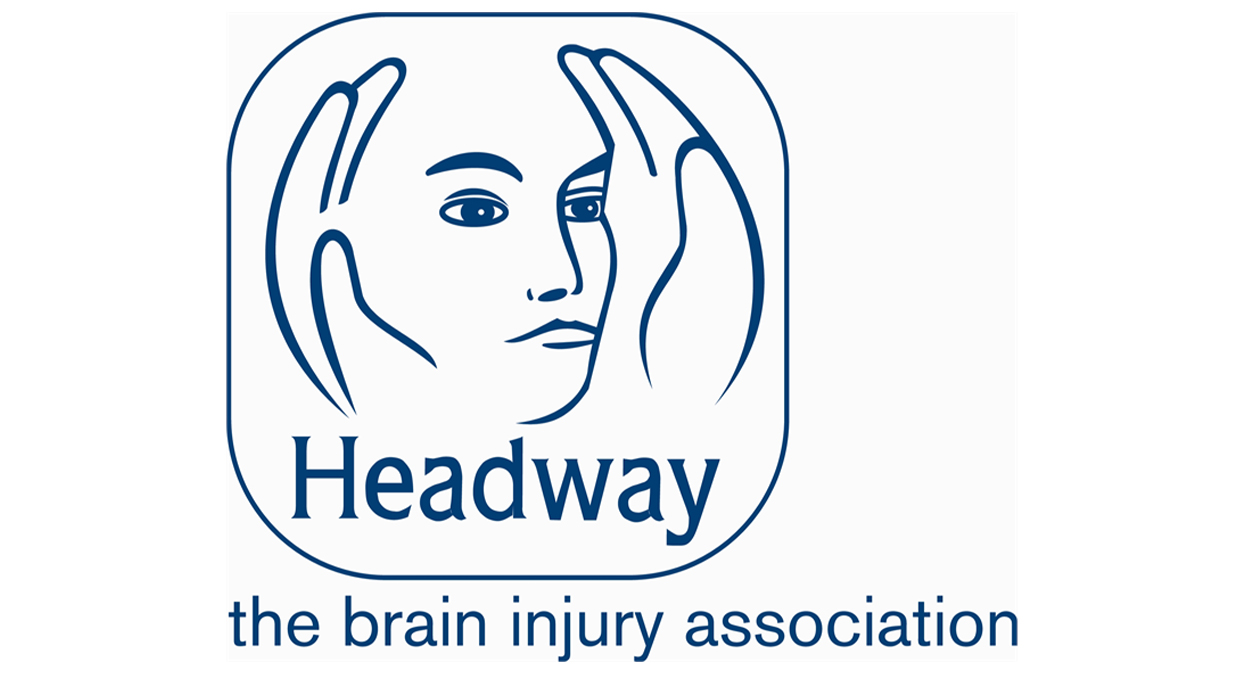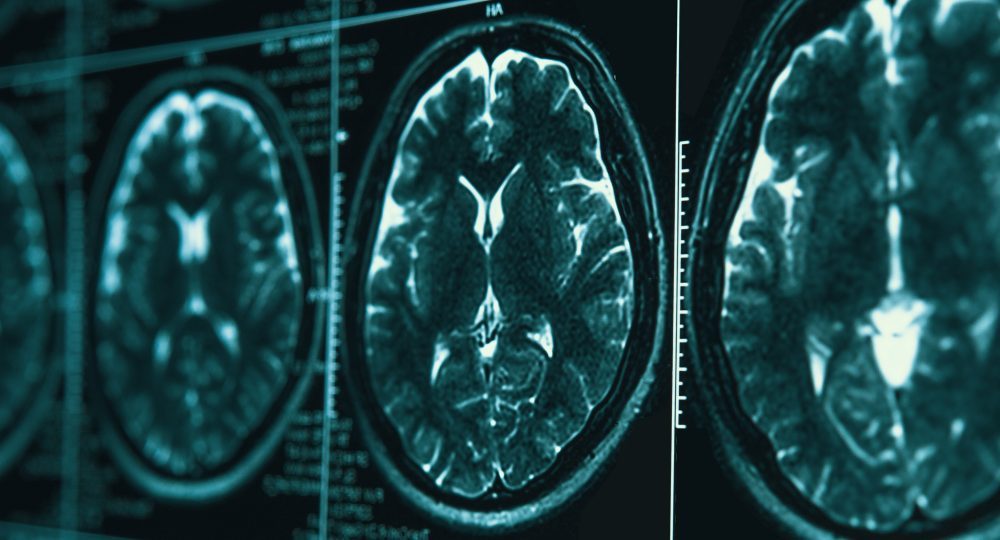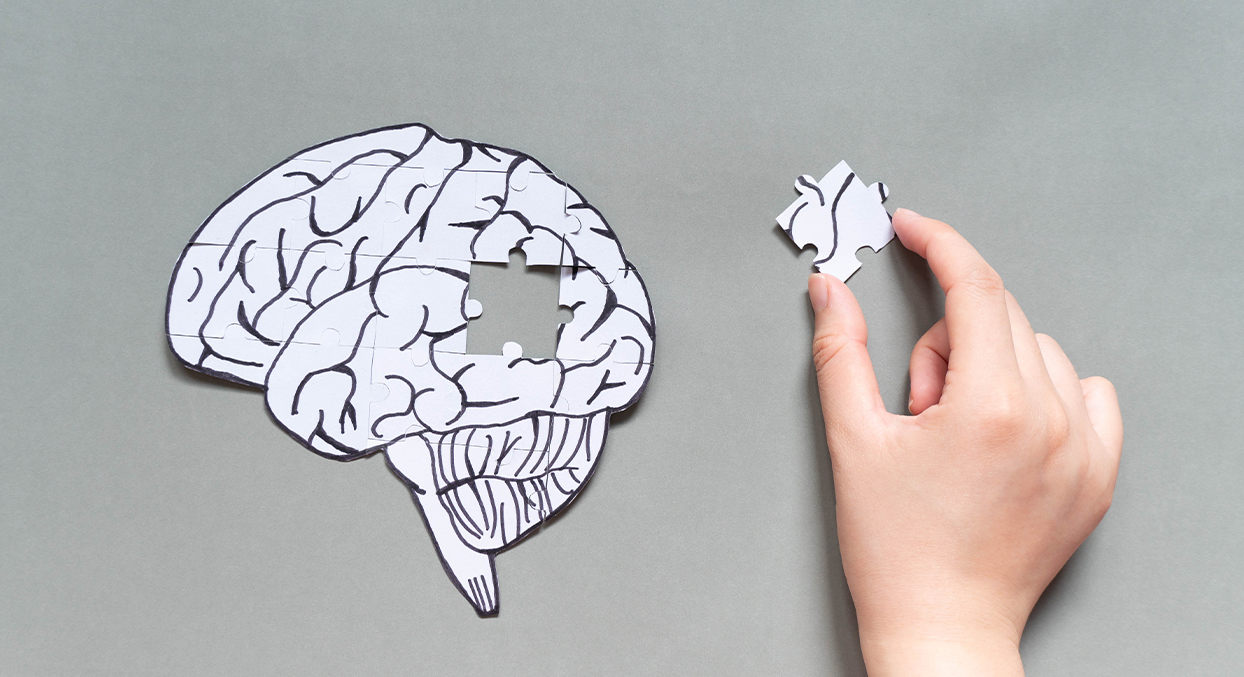For many people, living with a brain injury means having to adjust every aspect of their lives. Headway marks Action for Brain Injury Week (ABI Week) as “an annual platform on which we raise awareness of brain injury.” This year’s ABI Week takes place 20-26 May 2024.
In this second article in our two-part series to mark ABI Week 2024 (read the previous instalment here), we share further stories from our clients, told in their own and their families’ words as they interpret the theme “a life rewritten”.
Barney’s story
When you have a child, you have hopes and dreams for them before they are even born – ambitions for the person you would like them to become, and desires to raise them in a way that will shape both you and them.
We had that for Barney. Not firm aims for his career path or goals for his life, but rather a general idea of the type of life he would live, and that we would as a family. Our vision for his future, and for ours, has by now changed beyond recognition.
Barney has quadriplegic cerebral palsy due to a severe brain injury at birth. He’s non-verbal, a wheelchair user, PEG fed and has very limited fine motor skills. But he’s much more than those medical definitions. His laugh is the best sound you can hear – utterly contagious to anyone in his vicinity. He loves to play ‘chase’ and ‘hide and seek’ with his younger brother, and make us all jump by saying ‘boo’ with his AAC. His determination to overcome his physical disabilities and make his body give him some of the independence he deserves can be awe-inspiring to anyone who watches him persevere to achieve his goals.
But while he brings genuine joy and pride into our lives, being his parent isn’t easy. Our lives are very different to those we imagined all those years ago. As his mother, I’ve moved from fulltime employment to a haphazard freelance role, squeezed in around therapy, appointments and care.
His father doesn’t spend his weekends running around the rugby pitch or the football field with his son, but rather helping him in the most hands-on ways to take part in a special needs sports class, or on and off a pony in his disabled riding sessions.
We’ve both become well-versed in physiotherapy, occupational therapy, speech therapy and feeding therapy. We find ourselves advising his doctors on his medication and what needs to be done, and guiding his carers in the very best ways to support and encourage him. We spend countless hours researching equipment and therapy and services to ensure that he has every opportunity to achieve his potential.
It’s not a bad life, and we hope for Barney in many ways it’s a happy one – but it’s very much a different path to the one we imagined we would take eight years ago before he was born.
We don’t know what his future will hold. We spend our time now helping and planning for him to achieve as much independence as possible as he gets older. We want to enable him to live with his disabilities in the most fulfilling way he can.
Barney’s case, led by Stewarts, helps with that simply through allowing us to access the funds we need to give him those opportunities. Life with a disabled child is very expensive – in the obvious ways such as equipment and therapy and care provision, but also in the less obvious such as lack of career progression for us as parents. Money can never give Barney the life he should have had, but it certainly helps make the one he has the best it can be.
Olly’s story
My lovely son Olly died eight years after a traumatic brain injury (TBI), which led to severe diffuse axonal brain damage (DAI). The eight years were extremely hard, but I was comforted that we had time together to say, “I love you” and focus on “goodnight”, not “goodbye”.
You learn a lot about neuroscience when a loved one has a TBI (I started with Headway’s website). Sometimes, no one knows the answer with TBI patients; it was a bit wobbly for my linear brain at times.
Like you, I didn’t want to know about others’ bad news either. At first, I didn’t want to hear about the shorter life spans of people with TBI. I definitely didn’t want to hear about “end of life pathways”, “best interest” decisions or the awkward “ceiling of care” or organ donation conversations. Mostly I just wanted to close all my senses, my ears, my sense of smell and my peripheral vision, and alongside other family members do everything to help my son.
What happened to Olly that night changed our lives forever. I went to bed content knowing my gorgeous 19-year-old boy was busy, a popular surfer, skateboarder and a talented musician with a beautiful girlfriend.
But I was awoken before dawn to be told he was now motionless, silent, on the cusp of death. He had been broken into a ‘thousand pieces’ by a stranger, a joyrider racing at over 80 mph, who had rammed my son’s car (driver side) at an impact speed of over 60mph (in a 40mph zone). The emergency services rescued bits of Olly’s body, broken guitar and surfboard from the wreckage. We got the call from the police that every parent dreads. I fainted twice from the immediate shock of what I saw in A&E and gulped to prevent myself wailing (a skill honed over these past eight years).
Initially, his life was measured in hours of survival. Then, he was in a deafening silent coma for four months. “Mourn for Oliver as he’s gone. If he survives, your son will be a very different person,” was the heartbreaking truth delivered late one night (a few days after the crash) by a tired consultant in a dingy visitor room while Olly was in a coma nearby. I resented his directness, but it proved invaluable. That night steered me to be courageous, accept reality, grieve, and make the most of the time I may have left to mother him, be it just days, weeks or fingers crossed, perhaps years. It was still all so vague.
Over five months, the medical specialists built a new version of Olly, and he was found a rare rehabilitation bed with the wonderful team at the Queen Elizabeth Foundation. Olly was non-verbal with some indications of yes/no using his thumb and, on good days, occasionally could turn his head (when his favourite physio was on duty!). Eventually, he would be cared for in his local community by two carers, 24/7. At the same time as this tragedy, we all still had to work to pay the mortgages. My career nose-dived, but keeping our home safe and peaceful was crucial as a sanctuary from the hospital.
Our family engaged the experts at Stewarts to lead on the civil case and pursue the perpetrator who had unlawfully caused these catastrophic injuries. Cases take a long time, even with experts to help. It took over seven years for us to get the adapted beach wheelchair funded and fitted (he died soon after it was delivered). Stewarts were trusted advisors who helped protect Olly’s interests objectively, including advice on media and care/legal team appointments. Above all, I was touched by each birthday card they sent to Olly, treating him like a human still.
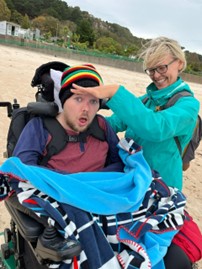 Olly suffered every year until he died in early 2023. He presented as tetraplegic and was dying slowly from the crash injuries. We were frequent guests of various ICUs and high-dependency units (HDUs) at different hospitals, as severe TBI disability can lead to seizures, sepsis, urinary tract infections and aspiration pneumonia. Each infection exposed him to hospital superbugs and antibiotic resistance. Each year, we prepared for the worst but planned for survival.
Olly suffered every year until he died in early 2023. He presented as tetraplegic and was dying slowly from the crash injuries. We were frequent guests of various ICUs and high-dependency units (HDUs) at different hospitals, as severe TBI disability can lead to seizures, sepsis, urinary tract infections and aspiration pneumonia. Each infection exposed him to hospital superbugs and antibiotic resistance. Each year, we prepared for the worst but planned for survival.
We found joy in unlikely places. I love recalling how his face lit up on the beach in the adapted wheelchair. It was a special treat for us both, we flew a kite and did a beach clean. We also enjoyed good days of massage, crafting, music, swimming (hydro), the cinema, cookery and outings on the sea when he fished from an adapted motorboat. Over the years, we had the most amazing carers and nurses who protected and adored him. Olly was a special human and still had a twinkle in his bright, blue eyes. You will meet some of the kindest, most talented professionals on your TBI journey. You will miss their companionship when it all stops.
In the middle of my many sleepless nights, I can still hear the life monitoring beeps, see every tube and remember every bruise. I can still smell the dried plasma of his wounds, the splash of his blood on my shoes after an A&E ‘bungle’ and recall the nausea I experienced on each and every ward. I soften these images by remembering the warmth of his hand and being able to say goodnight over eight years before eventually having to say goodbye.
The positives for other TBI families is that Olly defied the medical prognosis and survived; he defied the stats and progressed from vegetative to a person with a disorder of consciousness (“PDOC”) and then simply, a much-loved and inspiring brain-injured adult. Your loved one may do this too.
ON’s story
A life rewritten; a boy picks up a set of car keys he knows he shouldn’t
Prison
A life rewritten; another boy in the wrong place at the wrong time
Traumatic brain injury
A life rewritten; he will never be the same, never play the guitar, never surf, never be a father
Total and utter waste
A life rewritten; a mother doesn’t know how to cope
Life torn apart
A life rewritten; a father’s world turned upside down. His career cut short because everything he knows has shifted
Struggle and loss, a knife edge
A life rewritten; a sister looks at her newborn son and feels the graphic horror of the fragility of life
An attempt to mend her broken heart, to fill the void
A life rewritten; a stepmother can’t support an entire family and run a business
Plates crashing down
A life rewritten; a girlfriend has to try to accept that he will never be the same
A dream crushed and stolen
A life rewritten; a best friend becomes a carer and then loses him. The pain is almost too much to bear
Grief and depression and talk of suicide
A life rewritten; an entire community of friends in shock. Their collective pain is supported by a small shining beacon
Music and connection
A life rewritten; nobody really knows what to say, some get it, most don’t. They turn away from horror.
Friends drift away, family relationships break down irretrievably
A life rewritten; an entire family, aunts, uncles, grandparents, nephew, nieces have been affected in different ways
Ripples of shock and grief
A life rewritten; the family have to accept and learn new ways to care
Rehabilitation
A life rewritten; everything is a little easier with finding the right support
The lawyer who gently and solidly guides us all through new possibilities and realities
The carers who treat us like family, they are living angels
The physiotherapists who work so hard for tiny, huge gains
The case manager who runs the orchestra
The consultants that deal with loss and tragedy daily
The therapists that enrich
The counsellors who try to reframe
And the paramedics, nurses, the health care assistants, the police, the secretaries, the undertakers, the GPs, the experts, the technical assistants, managers, friends made in hospital waiting rooms
The entire team that rewrites a life, our lives.
A life rewritten; a boy picks up a set of car keys he knows he shouldn’t
So many lives rewritten.
You can find further information regarding our expertise, experience and team on our Personal Injury, Clinical Negligence and International Injury pages.
If you require assistance from our team, please contact us.
Subscribe – In order to receive our news straight to your inbox, subscribe here. Our newsletters are sent no more than once a month.

